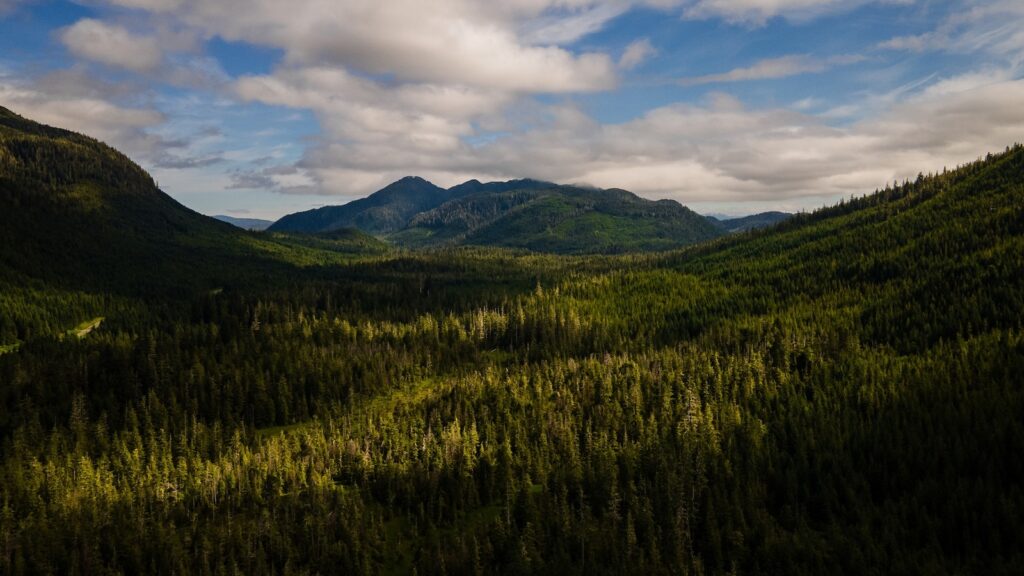
WASHINGTON, D.C. – The Trump administration has announced plans to repeal the “Roadless Rule,” a move that has sparked significant concern among environmental advocates who warn of potential widespread destruction to national forests.
Breaking: Forest Protections Under Threat
On Monday, Secretary of Agriculture Brooke Rollins declared the administration’s intention to rescind the “Roadless Rule,” a regulation established in 2001 to preserve 58.5 million acres of roadless areas within the National Forest System. This rule, originally proposed under the Clinton administration, was designed to prevent road construction, reconstruction, and timber harvesting in these areas.
Immediate Impact
The repeal would open federal lands to increased development and logging activities, a prospect that environmental groups argue could lead to severe ecological damage. The U.S. Department of Agriculture (USDA) supports the repeal, stating that the rule is “outdated” and hampers the Forest Service’s ability to manage forest health effectively.
The “Roadless Rule” affects approximately one-third of the National Forest System’s total land area.
Key Details Emerge
According to the USDA, the rule has restricted nearly 60% of forest service land in Utah from road development, limiting efforts to manage fire risks. Similar restrictions apply to 58% of federal forest land in Montana and about 92% of Alaska’s Tongass National Forest.
Environmental Concerns
Environmental groups argue that removing these protections could exacerbate wildfire risks. Drew Caputo of Earthjustice highlighted that wildfires are nearly four times more likely to ignite in forest areas with roads compared to roadless areas.
“Our nation’s public forests belong to all of us, but the Trump Administration is treating them as property for the private industry to clearcut, drill, and profit,” said Josh Hicks of The Wilderness Society.
Industry Response
The USDA contends that rescinding the rule will facilitate fire prevention and responsible timber production. The administration’s stance aligns with President Trump’s broader deregulation agenda, emphasizing local decision-making and increased timber production.
“This move opens a new era of consistency and sustainability for our nation’s forests,” Secretary Rollins stated.
By the Numbers
- 58.5 million acres affected by the Roadless Rule
- 60% of Utah’s forest service land restricted
- 58% of Montana’s federal forest land restricted
- 92% of Alaska’s Tongass National Forest restricted
- 28 million acres at high or very high wildfire risk
What Comes Next
The USDA plans to issue a formal notice of the rollback in the coming weeks. Environmental organizations have vowed to challenge the repeal in court, emphasizing the critical role these protected areas play in preserving biodiversity and providing recreational opportunities.
“If the Trump administration actually revokes the roadless rule, we’ll see them in court,” Caputo warned.
Background Context
The “Roadless Rule” was the result of extensive public comment and formulation under President Bill Clinton, garnering broad support for its role in conserving forest ecosystems and habitats. It has been instrumental in protecting lands from energy development, mining, logging, and road building.
Expert Analysis
Chris Wood of Trout Unlimited emphasized the importance of roadless areas as sources of clean water and prime hunting and fishing grounds. Vera Smith of Defenders of Wildlife criticized the repeal as “taking a blowtorch” to essential protections.
“Let’s hope common sense prevails and the Administration reconsiders its proposal,” Wood urged.
Regional Implications
The repeal could have significant regional impacts, particularly in areas like Alaska’s Tongass National Forest, where the majority of land is currently protected under the rule. The shift could lead to increased logging and development, altering the landscape and affecting local communities.
Timeline of Events
- 1999: “Roadless Rule” proposed by the Clinton administration
- 2001: Rule enacted to protect national forests
- 2025: Trump administration announces plans to repeal the rule
- Upcoming: Formal notice of rollback to be issued
The Trump administration’s proposal to repeal the “Roadless Rule” represents a significant policy shift, with potential legal battles on the horizon as environmental groups prepare to defend the protections in court. The outcome will likely have lasting implications for the management and preservation of America’s national forests.






